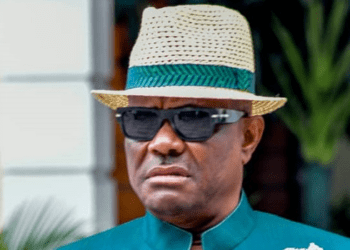Nigeria has appointed Justice Kudirat Kekere-Ekun as its 23rd Chief Justice of the Federation, marking a significant milestone as the country welcomes its second female Chief Justice in history.
This historic appointment, announced by President Bola Tinubu on Friday, is seen as a progressive step forward in promoting gender equality within the nation’s highest judicial office.
Justice Kekere-Ekun brings a wealth of experience and a distinguished career in the judiciary to the role. Her elevation to the highest judicial position is expected to influence key legal reforms and further strengthen the independence and integrity of Nigeria’s judicial system.
In this report, PUNCH Online profiles the second woman to be sworn in as the nation’s CJN.
Justice Kudirat Kekere-Ekun was born in London, United Kingdom, on 7 May 1958. Her parents, both from Lagos State, Nigeria, have deeply influenced her life. She is the eldest of eleven siblings. Her father, Senator Hassan Adisa Babatunde Fasinro, OFR, LL.D, was a senator in Nigeria and a fervent Muslim. He was also a legal practitioner, author, dedicated family man, and one of the founding fathers of Lagos. He passed away at the age of 99 in March 2019.
Her mother, Mrs Winifred Layiwola Ogundimu (née Savage), a devout Christian, studied nursing in the UK, where she qualified as a Public Health Nurse before returning to Nigeria in December 1965. Upon her return, she built a career in the Lagos State civil service and retired at the age of 60.
Justice Kekere-Ekun attended private primary schools before enrolling at Queen’s College, Lagos, in 1970, the premier Federal Government College for girls at the time. She studied Law at the University of Lagos from 1977 to 1980, obtaining her LL.B in 1980. She then attended the Nigerian Law School from 1980 to 1981 and was called to the Nigerian Bar on 10 July 1981.
From 1981 to 1982, she completed her mandatory National Youth Service Corps at the Ministry of Justice in Benin City, Bendel State (now Edo State). She later pursued a master’s degree in Law at the London School of Economics and Political Science (LSE), graduating in 1983.
After qualifying as a lawyer and earning her master’s degree, she worked in private practice for a few years. However, due to the demands of private practice on her family life, she decided to join the bench, seeking a more predictable work schedule. She was appointed a Senior Magistrate Grade II by the Lagos State Judiciary in December 1989, marking the beginning of her career on the bench. On 19 July 1996, she was appointed a Judge of the High Court of Lagos State.
On 22 September 2004, she was elevated to the Court of Appeal, where she served in five different divisions across the country. She was the pioneer Presiding Justice of the Makurdi Division and served as the Presiding Justice of the Akure Division before her elevation to the Supreme Court on 8 July 2013. She is the fifth woman to be promoted to the Apex Court, following in the footsteps of Justices Aloma Mukhtar, Clara Bata Ogunbiyi, Olufunlola Adekeye, and Mary Ukaego Peter-Odili.
Justice Kekere-Ekun’s career is marked by several key roles and contributions:
Robbery and Firearms Tribunal: She served as Chairman of the Robbery and Firearms Tribunal, Zone II, Ikeja, Lagos, from November 1996 until the tribunals were abolished in May 1999.
Financial Crimes and Money Laundering Cases: She was one of three judges first selected to try cases under the Economic and Financial Crimes Commission Establishment Act, 2004, and the Corrupt Practices and Other Related Offences Act, 2000.
Ethics Curriculum Planning Committee: In 2003, she was a member of the committee that produced the Code of Conduct for Judicial Employees under the National Center for State Courts and the UNODC.
UNODC Pilot Project: From February 2003 to July 2004, she chaired the Public Complaints and Training Committee, part of a pilot project to strengthen judicial integrity in Lagos State.
Lagos State Judiciary Contributions: She supervised the Apapa Magisterial District from October 2002 to July 2004, served on the committee that drafted the High Court of Lagos State (Civil Procedure) Rules 2004, and was a member of the Steering Committee of the Lagos State Multi-Door Court House, Africa’s first court-connected Alternative Dispute Resolution centre.
Justice Kekere-Ekun is also a recipient of numerous awards and a member of several professional associations, including the National Association of Women Judges and the International Association of Women Judges. She is a Life Bencher and Fellow of the Nigerian Institute of Advanced Legal Studies and the International Dispute Resolution Institute. She is also a member of the Ikoyi Club 1938.
She has been married to Mr Akin Kekere-Ekun, OFR, a former Managing Director of the now-defunct Habib Bank Nigeria Plc, since December 1983. Their union is blessed with three children.
Justice Kekere-Ekun’s Landmark Decisions:
Imo State Governorship: Justice Kekere-Ekun overturned lower court decisions, delivering the judgment that sacked Emeka Ihedioha and affirmed Hope Uzodinma as Governor of Imo State.
Kogi State Governorship: She delivered the judgment affirming Yahaya Bello as Governor of Kogi State in a dispute between APC and James Faleke following the death of Abubakar Audu.
Osun State Governorship: In 2020, she delivered the judgment affirming former Osun Governor Gboyega Oyetola against Ademola Adeleke, citing the absence of the Tribunal chair in one of the sittings.
Rivers State Governorship: In 2016, she delivered the judgment affirming PDP’s Nyesom Wike as Governor of Rivers State, after the Tribunal and Appeal Court had nullified Wike’s victory and called for a fresh election.
Culled: PUNCH








